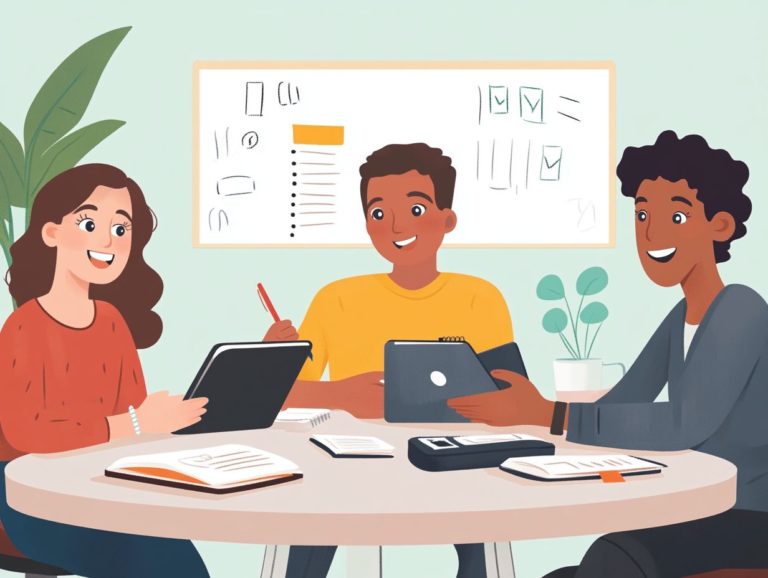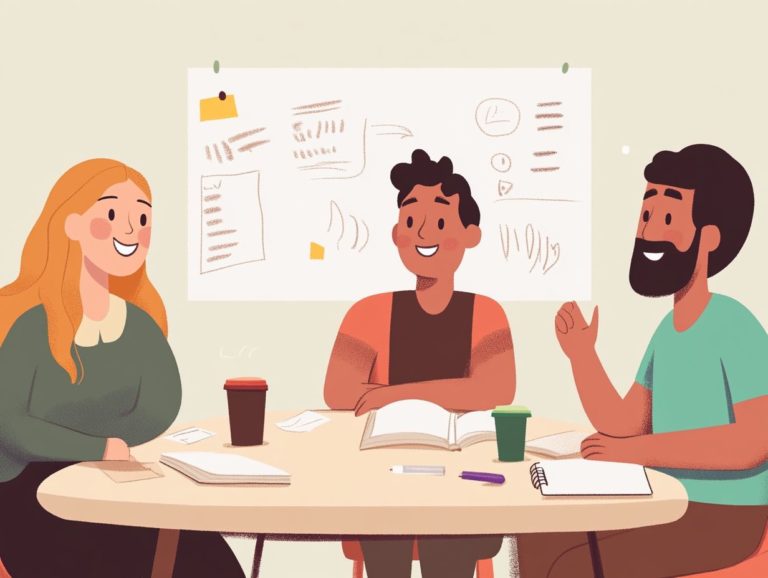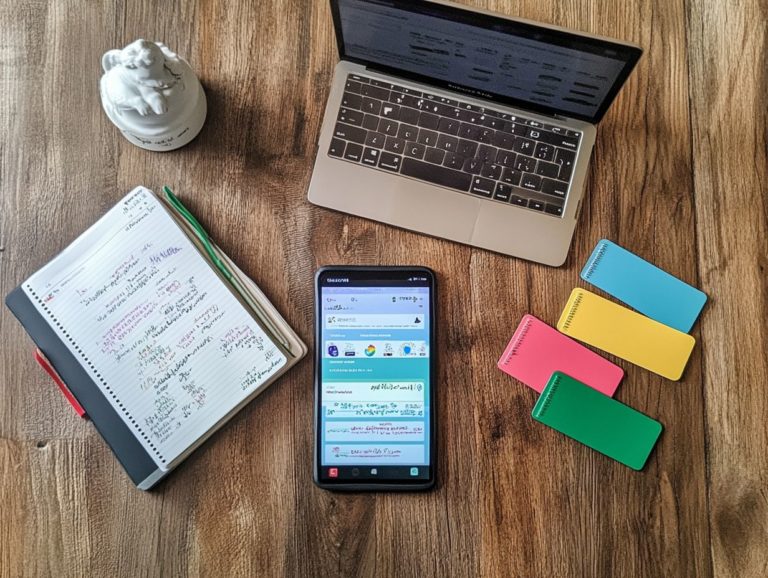The Importance of Feedback in Language Learning
Feedback is essential in your language learning journey. It guides you toward improvement and builds your confidence.
This article explores the multifaceted nature of feedback, including its definition, purpose, and various types in education. You ll discover how positive and constructive feedback can significantly impact your learning, alongside the challenges of negative feedback.
By mastering the art of giving and receiving feedback, you can enhance your language skills and motivation, setting the stage for personal growth.
Jump in to discover powerful strategies that will transform your language learning!
Contents
- Feedback in Language Learning
- Negative Feedback and Its Impact
- Benefits of Feedback in Language Learning
- Effective Strategies for Giving and Receiving Feedback
- Frequently Asked Questions
- Conclusion
- What is the importance of feedback in language learning?
- How does feedback improve language learning?
- What are the different types of feedback in language learning?
- Who can provide feedback in language learning?
- How often should feedback be given in language learning?
- What are some tips for giving effective feedback in language learning?
Key Takeaways:

- Feedback is crucial for language learning.
- It offers guidance and motivation.
- Different types of feedback can help you grow.
Understanding Feedback in Language Learning
Understanding feedback in language learning is vital for effective communication skills and enhancing your learning experience. Feedback is information you get about how well you’re doing. It helps you identify areas that need improvement while fostering your independence as a learner.
Feedback plays a significant role in different assessment methods, which help you become better at listening, speaking, reading, and writing.
As educators use technology and educational tools, the importance of feedback becomes even clearer, keeping you engaged and motivated on your path to fluency and accuracy.
Defining Feedback and Its Purpose
Feedback in language learning is your roadmap. It provides information about your performance, guiding you toward your learning goals. This process has multiple benefits, primarily fostering your growth by highlighting strengths and identifying areas for attention.
In educational settings, particularly in learning a language, effective feedback shapes your understanding and abilities. Engaging in self-assessment allows you to reflect on your progress and cultivate a sense of independence.
Constructive feedback sharpens your communication skills, enabling clearer expression and comprehension so you can meet your learning objectives with confidence.
Types of Feedback in Language Learning
In language learning, you encounter various types of feedback critical to your development.
Positive feedback, constructive feedback, oral corrections, written corrections, and error correction all play distinct yet vital roles in enhancing your language skills. Embracing this diverse feedback can significantly boost your progress and deepen your understanding of the language.
Positive and Constructive Feedback
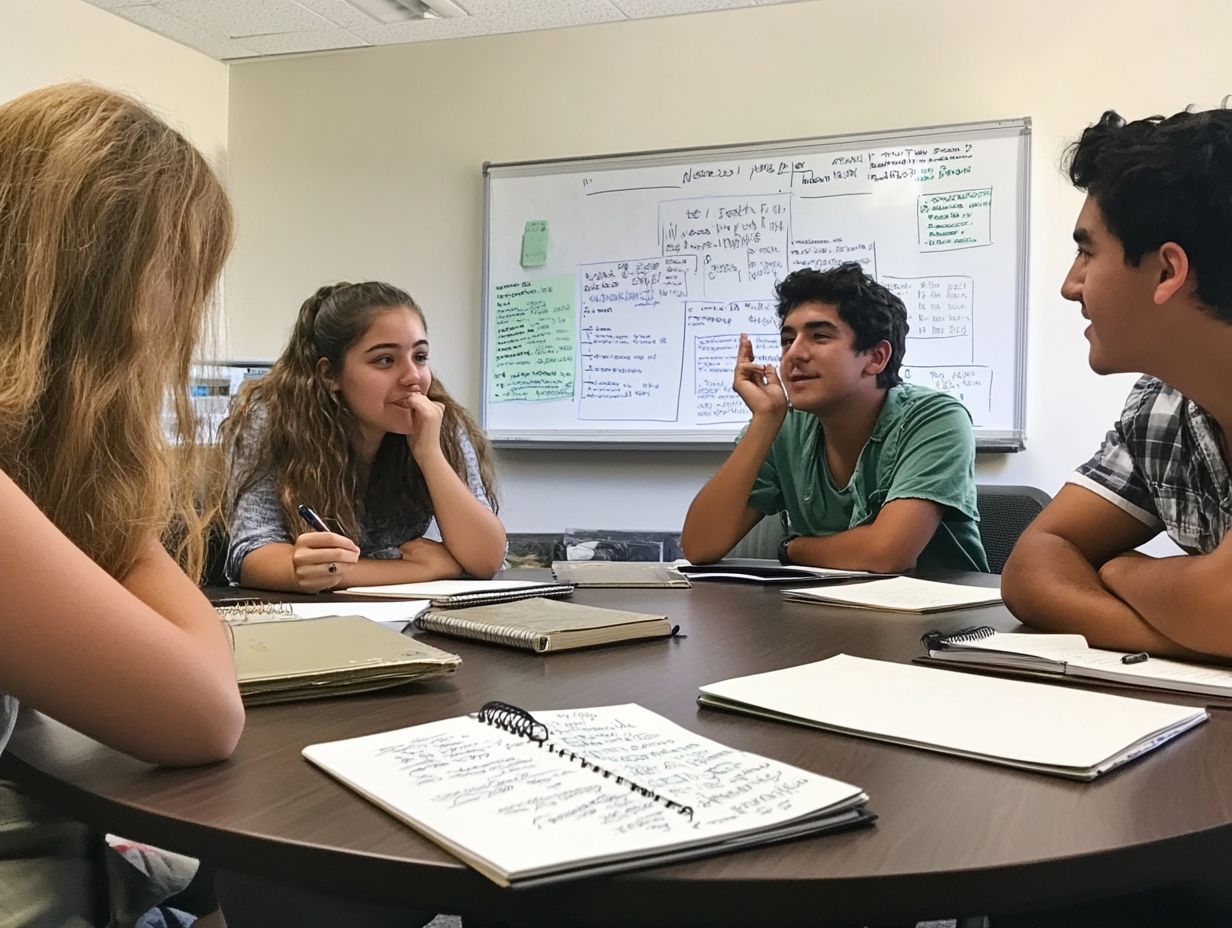
Positive and constructive feedback are essential elements of effective teaching that empower you as a learner and elevate your motivation. Acknowledging your strengths while guiding you in areas for improvement fosters a sense of autonomy in your learning journey.
Recognizing your achievements boosts your confidence and inspires you to take charge of your educational path. Constructive feedback acts as a roadmap, pointing out specific actions you can take to hone your skills.
When educators customize their feedback strategies to suit your needs, they create a more engaging classroom atmosphere where you feel safe to ask questions and share ideas.
Techniques such as the ‘sandwich approach’ where praise is followed by constructive critique and finished with encouragement can be particularly effective. This balanced feedback nurtures your resilience and keeps your motivation high, enriching your learning experience.
Start using feedback to elevate your language skills today!
Feedback in Language Learning
Negative Feedback and Its Impact
Negative feedback, while often viewed skeptically, can greatly affect your behavior and language skills when delivered thoughtfully, focusing on fixing mistakes.
When educators present critiques as gateways to growth instead of mere assessments, you re more likely to embrace challenges and adapt your strategies. This shift in mindset is crucial for building resilience, allowing you to see setbacks as opportunities rather than hurdles.
Incorporating constructive criticism that aligns with your learning goals helps create an environment where mistakes become invaluable lessons.
This approach enhances your performance and ignites a passion for learning, showing that negative feedback can be a powerful catalyst for academic success.
Benefits of Feedback in Language Learning
The benefits of feedback in language learning are remarkable. They improve your skills, fluency, accuracy, and complexity.
Together, these enhancements significantly elevate your communication abilities, enabling you to express yourself more clearly and confidently.
Improving Language Skills and Motivation
Feedback is a vital catalyst in boosting your language skills and motivation, acting as a bridge between technology and effective ways to give feedback that helps improve learning.
Receiving specific insights allows you to understand your strengths and weaknesses in speaking, reading, writing, and listening. This personalized guidance builds your confidence and encourages active engagement in the learning process.
By integrating feedback through digital platforms, you benefit from immediate responses, making it easier to grasp complex concepts and apply your skills effectively. Such timely insights can elevate your motivation as you witness your progress in real-time, fostering a dynamic learning environment that supports continuous growth.
Effective Strategies for Giving and Receiving Feedback

Effective strategies for giving and receiving feedback are crucial for unlocking its full potential in your language learning journey.
Engaging in both peer assessments and teacher feedback enhances your performance evaluation, leading to better outcomes.
This dual approach allows you to refine your skills and elevate your learning experience.
Tips for Giving Constructive Feedback
When providing constructive feedback, it s essential to offer specific, targeted, and timely insights that address learners’ needs while promoting their growth.
This approach cultivates a nurturing environment, boosting engagement and motivation among language learners.
For instance, rather than saying a student s pronunciation needs improvement, pinpoint which sounds are problematic and suggest practical exercises, like practicing minimal pairs.
Offering feedback right after an assessment allows students to integrate it into their next practice sessions.
Establishing a feedback loop where learners can ask questions about your comments reinforces their understanding and helps them take greater responsibility for their progress toward their language goals.
How to Utilize Feedback for Personal Growth
Utilizing feedback for personal growth means engaging in self-assessment and collaborating with language partners to reflect on areas ready for improvement and boost your motivation.
By systematically analyzing your strengths and weaknesses through reflective journaling or focused questionnaires, you can identify specific areas that require attention.
Language partners are essential in this journey, offering valuable insights and constructive criticism that can propel your progress. Regular conversations with more proficient speakers not only build your confidence but also expose you to various linguistic styles and cultural nuances.
Working together creates an exciting space where you can celebrate wins, tackle challenges, and set achievable goals, ultimately leading to a more enriching experience.
Frequently Asked Questions
Feedback is vital in language learning. Start engaging in self-assessment today to unlock your potential!
Conclusion
In conclusion, feedback plays a crucial role in enhancing your language learning experience. Embrace the strategies shared and apply them to maximize your growth and success!
What is the importance of feedback in language learning?
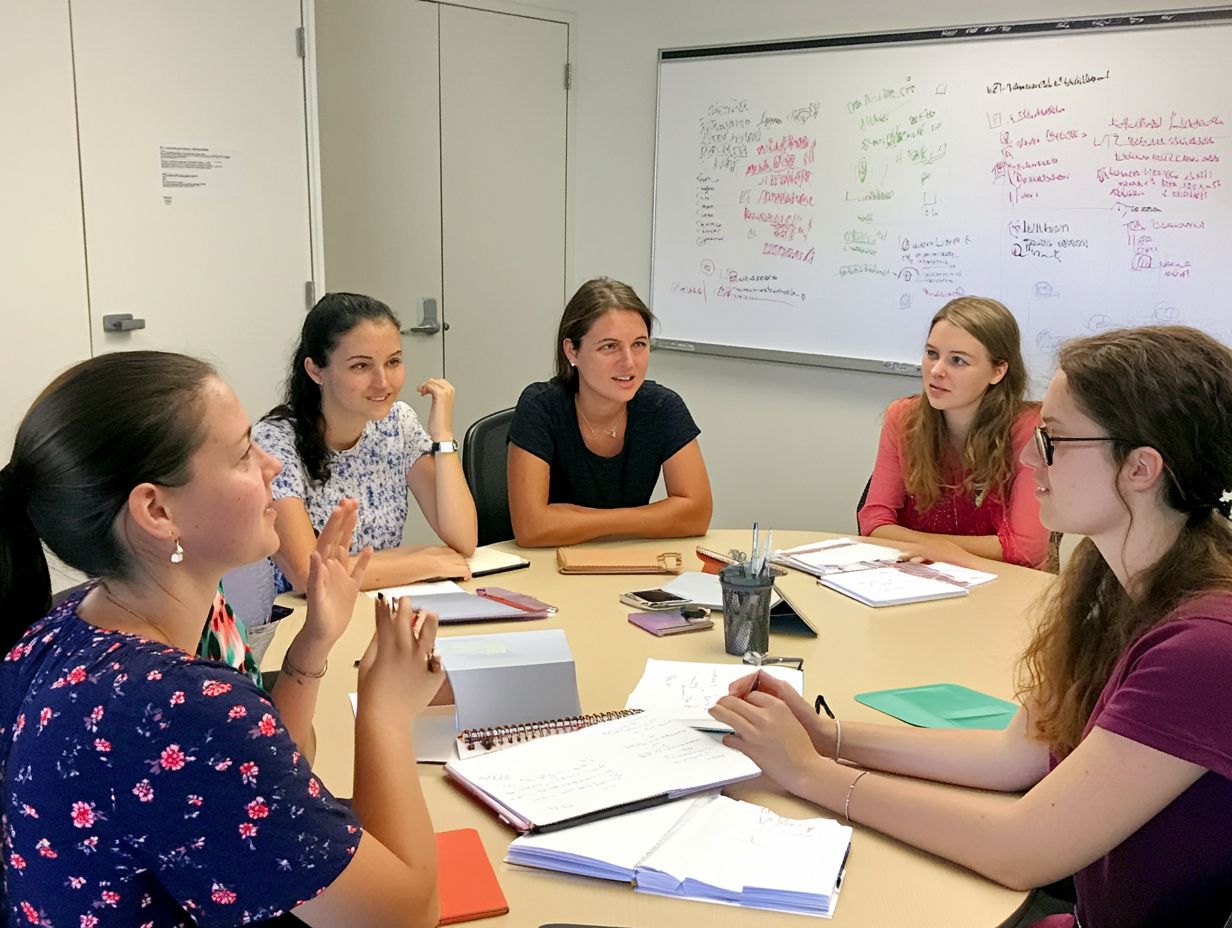
Feedback is essential in language learning. It provides learners with valuable insights into their progress and areas for improvement, highlighting the importance of listening in language learning.
How does feedback improve language learning?
Feedback gives learners clear steps on how to improve their language skills. By correcting errors, it helps students advance more effectively.
What are the different types of feedback in language learning?
There are three main types of feedback: corrective, positive, and negative. Corrective feedback fixes errors, while positive feedback encourages correct usage and highlights areas for improvement.
Who can provide feedback in language learning?
Teachers, peers, and self-reflection can all provide feedback. Teachers offer structured insights, while peers bring a fresh perspective.
How often should feedback be given in language learning?
Feedback frequency varies among learners. Some thrive on regular comments, while others prefer in-depth feedback less often.
What are some tips for giving effective feedback in language learning?
Effective feedback is specific, timely, and constructive. Use examples to clarify mistakes, and always celebrate progress!

